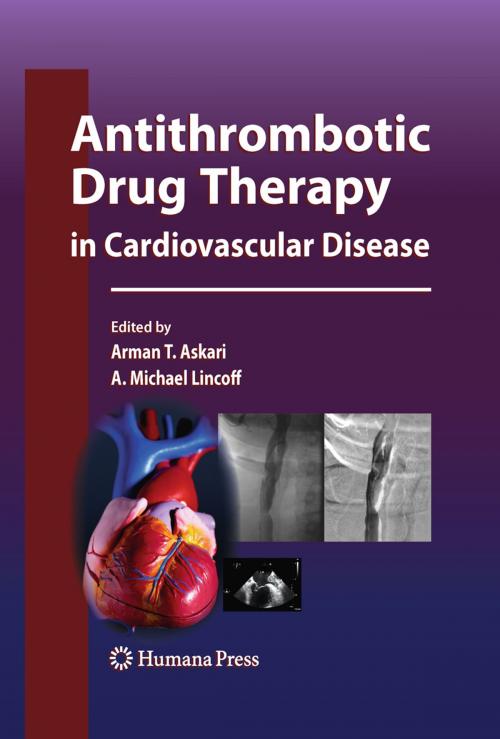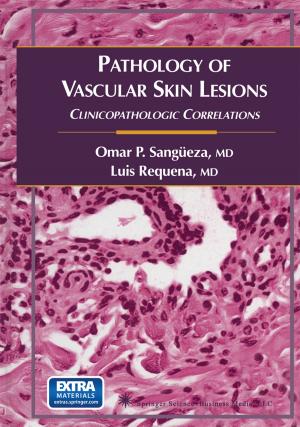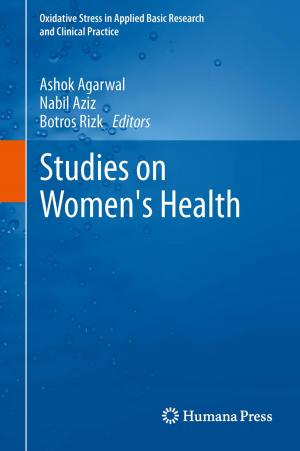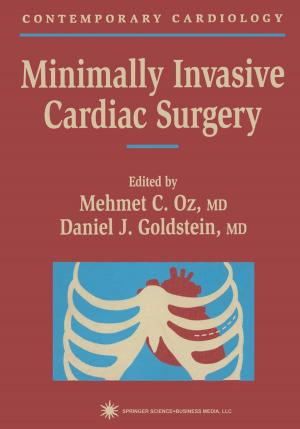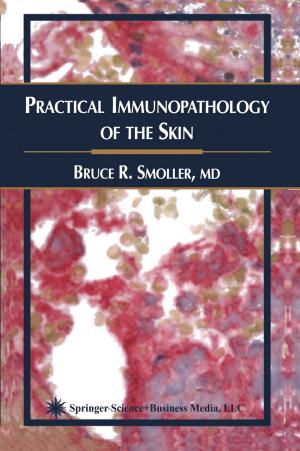Antithrombotic Drug Therapy in Cardiovascular Disease
Nonfiction, Health & Well Being, Medical, Specialties, Internal Medicine, Cardiology, General| Author: | ISBN: | 9781603272353 | |
| Publisher: | Humana Press | Publication: | March 20, 2010 |
| Imprint: | Humana | Language: | English |
| Author: | |
| ISBN: | 9781603272353 |
| Publisher: | Humana Press |
| Publication: | March 20, 2010 |
| Imprint: | Humana |
| Language: | English |
Substantial morbidity and mortality remains associated with thrombotic events has stimulated the rapid expansion of the available armamentarium to combat pathologic thrombosis. Pathologic thrombosis plays an essential role in the pathogenesis of acute coronary syndromes (ACS), ischemic complications of percutaneous coronary intervention (PCI), venous thromboembolic disease, and embolic complications of arrhythmias and various cardiomyopathies.
Written by experts in the field, Antithrombotic Drug Therapy in Cardiovascular Disease carefully examines individual and various combinations of the available antithrombotic regimens including fibrinolytic agents, antiplatelet therapies (aspirin, thieneopyridines, glycoprotein IIb/IIIa inhibitors), and anticoagulant therapies (unfractionated heparin, low-molecular-weight heparins, direct thrombin inhibitors, and synthetic factor X inhibitors), non-ST-segment elevation (NSTE) ACS and ST-segment elevation myocardial infarction (STEMI). A detailed overview, Antithrombotic Drug Therapy in Cardiovascular Disease presents the evidence demonstrating the efficacy of available antithrombotic therapies in specific disease states such as atrial fibrillation, cardiomyopathy, valvular heart disease, and heparin-induced thrombocytopenia (HIT).
Substantial morbidity and mortality remains associated with thrombotic events has stimulated the rapid expansion of the available armamentarium to combat pathologic thrombosis. Pathologic thrombosis plays an essential role in the pathogenesis of acute coronary syndromes (ACS), ischemic complications of percutaneous coronary intervention (PCI), venous thromboembolic disease, and embolic complications of arrhythmias and various cardiomyopathies.
Written by experts in the field, Antithrombotic Drug Therapy in Cardiovascular Disease carefully examines individual and various combinations of the available antithrombotic regimens including fibrinolytic agents, antiplatelet therapies (aspirin, thieneopyridines, glycoprotein IIb/IIIa inhibitors), and anticoagulant therapies (unfractionated heparin, low-molecular-weight heparins, direct thrombin inhibitors, and synthetic factor X inhibitors), non-ST-segment elevation (NSTE) ACS and ST-segment elevation myocardial infarction (STEMI). A detailed overview, Antithrombotic Drug Therapy in Cardiovascular Disease presents the evidence demonstrating the efficacy of available antithrombotic therapies in specific disease states such as atrial fibrillation, cardiomyopathy, valvular heart disease, and heparin-induced thrombocytopenia (HIT).
